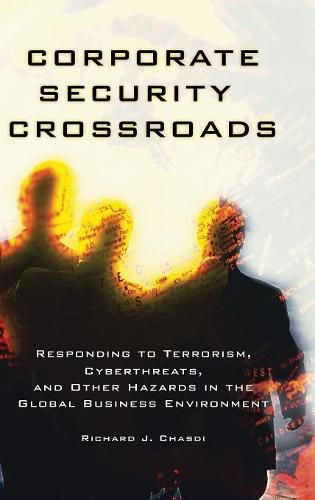Readings Newsletter
Become a Readings Member to make your shopping experience even easier.
Sign in or sign up for free!
You’re not far away from qualifying for FREE standard shipping within Australia
You’ve qualified for FREE standard shipping within Australia
The cart is loading…






Even though terrorism poses an increasing threat to multinational companies, corporate leaders can thwart attacks by learning to navigate the complexities of foreign governments, social unrest, and cultural dissonance.
Multinational corporations are on the front lines of terrorism and cyberattacks-two of the world’s biggest threats to global security. How can corporate leaders mitigate their organizations’ risks and develop an infrastructure that detects and deters a security menace before it happens? This timely reference lays out essential political context and historical background to help executives identify contemporary threats and understand the interconnections between threat dynamics in an increasingly dangerous international environment.
This compelling work is organized into seven chapters. The beginning chapters profile the specific risks for multinational companies and detail which global-and regional-factors might propagate violence targeted at American-based businesses. Next, two historical case studies on terrorist assaults at Tigantourine and Mombasa illustrate how counterterrorism can successfully thwart potential attacks against business targets. The final part describes industrial espionage and criminal activity and then outlines a corporate counterterror blueprint to combat the prospect of terrorism, providing specific recommendations for preventative measures.
Covers different operational environments
Offers strategies for minimizing risk, such as shortening supply chains and creating redundancies to mitigate cyberattacks or physical threats
Discusses the use of corporate intelligence about local conditions to create effective security measures and track future safety trends
Suggests that multinational corporations work together to achieve economies of scale in antiterrorism services and to establish partnerships with local governments
$9.00 standard shipping within Australia
FREE standard shipping within Australia for orders over $100.00
Express & International shipping calculated at checkout
Even though terrorism poses an increasing threat to multinational companies, corporate leaders can thwart attacks by learning to navigate the complexities of foreign governments, social unrest, and cultural dissonance.
Multinational corporations are on the front lines of terrorism and cyberattacks-two of the world’s biggest threats to global security. How can corporate leaders mitigate their organizations’ risks and develop an infrastructure that detects and deters a security menace before it happens? This timely reference lays out essential political context and historical background to help executives identify contemporary threats and understand the interconnections between threat dynamics in an increasingly dangerous international environment.
This compelling work is organized into seven chapters. The beginning chapters profile the specific risks for multinational companies and detail which global-and regional-factors might propagate violence targeted at American-based businesses. Next, two historical case studies on terrorist assaults at Tigantourine and Mombasa illustrate how counterterrorism can successfully thwart potential attacks against business targets. The final part describes industrial espionage and criminal activity and then outlines a corporate counterterror blueprint to combat the prospect of terrorism, providing specific recommendations for preventative measures.
Covers different operational environments
Offers strategies for minimizing risk, such as shortening supply chains and creating redundancies to mitigate cyberattacks or physical threats
Discusses the use of corporate intelligence about local conditions to create effective security measures and track future safety trends
Suggests that multinational corporations work together to achieve economies of scale in antiterrorism services and to establish partnerships with local governments